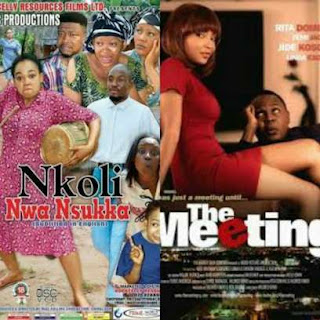Much fuss about MOPICON bill
You would actually think even every aspiring filmmaker would consider it an important issue, and ensure that the bill never becomes a law, especially, when they have been given an opportunity to part of a review committee.
The Motion Picture Practitioners Council of Nigeria (MOPICON) bill was created over 10 years ago after a group of industry practitioners sat to draft it.
Recently, the Minister of Information and Culture, Alhaji Lai Mohammed, announced the inauguration of a Ministerial Committee aimed at fast-tracking the passage into law of the MOPICON Bill .
It trended on Twitter, Facebook and on every social media platform you can think of, but I discovered three group of people involved in the MOPICON drama.
Filmmakers who do not know about MOPICON
My conversation with a filmmaker whose name I won't mention:
Me: What are your thoughts on the controversial MOPICON bill?
Renowned filmmaker: What is that one again?
Me: It's a 49 page document aimed at regulating Nollywood. According to the bill, a person not registered as a member is prohibited from making a movie. Also, as a director and actor, you can not be on two different projects at the same time.
Renowned filmmaker: I am just hearing about it. I will do my homework.
There are without doubt, a huge number of filmmakers like my interviewee, who do not know the meaning of MOPICON - no, they do not even know about the word MOPICON.
I was embarrassed that a filmmaker, who has won reputable awards, didn't know about the controversial bill, which almost every Nollywood practitioner had something to say about on social media.
While MOPICON was trending everywhere, I said to a colleague, "you can bet that some people do not know or understand this thing called MOPICON bill. They just want to be a part of a trending topic, which seemed important."
2. The 'young' generation of filmmakers who are not exactly interested in this thing called MOPICON.
I have come to see most Nollywood actors as social media activist, who think every problem must be solved via Twitter and Facebook - reminds me of the 2015 and 2016 #OscarsSoWhite trend.
It is one thing to start a campaign via social media, it's another to be more than a social media activist. On April 12, 2016, Alhaji Lai Mohammed inaugurated the Ministerial Committee on the Review of the bill 's » draft document, and as expected, some 'young filmmakers' were announced.
I personally saw that as the perfect opportunity for any filmmaker to create the change they want, to represent himself and every other person who shares same thought as regards the controversial bill.
I was disappointed when another filmmaker took to his social media page to disassociate himself from the committee. It seemed like someone didn't want to be a part of the end result, 'they' didn't want their name associated with whatever negativity that would come with the bill. The irony is that this filmmaker was one of the numerous protesters who signed the 'stop the MOPICON BILL' petition.
The young generation were given a chance to be represented, to speak and fight for themselves, but no, this talented and smart filmmaker chose his hobby over something as 'serious' as MOPICON.
Most of the other young filmmakers tweeting per second and signing petitions everywhere, would also have turned down the opportunity to be a part of the committee.
The minister asked for a review so the industry can be regulated. I'm not going to talk about how necessary or unnecessary it is, but if you failed to represent people with whom you share same views, if you failed to be part of the change you scream about, then you have no right to complain or flood social media with #NotoMopicon.
3. The old filmmakers who think it's a battle.
Most people think it's not a battle between the old and young, I think so too, but then, the 'old' filmmakers have made it seem like a battle.
With comments like "why are the young filmmakers afraid of regulation?", » "All these new upstarts and up and comers in Nollywood; the propagators of the so-called 'New Nollywood," one can conclude that it's a young versus old battle.
I also heard the bill was initially drafted to prevent the Asaba marketers from joining Nollywood. So it might as well be a battle between Nollywood versus Asaba Marketers.
In a recent interview with Hip TV, Yoruba actor Yomi Fash Lanso , said he is yet to decide what Nollywood stands for in Nigeria. He further stated that he doesn't see himself as a Nollywood actor, but as a Nigerian actor.
There are lots of Nigerians who feature in Nollywood films, but do not consider themselves Nollywood actors. There are those who think they have been in the industry for two decades and should have an edge or certain control over the young filmmakers. There are also those who tweeted about the MOPICON bill everyday, but know nothing about it - it's a show business, and you have to act like you know.
During his inauguration speech, Lai Mohammed said the 'level of disunity in the industry has not allowed the industry to speak with one voice, and I totally agree with him.





Comments